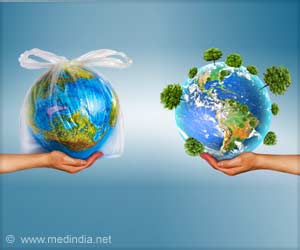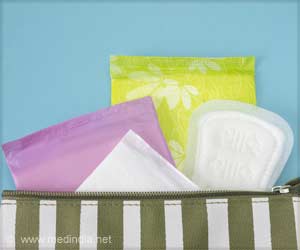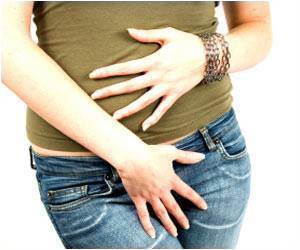Biodegradable, eco-friendly sanitary napkins are now available to Indian women. These pads are made in India and completely natural, free from plastic, safe and do not cause allergies, itching or infections.
- Indian made biodegradable sanitary napkins are now available to women under various brand names. They are natural, do not contain plastic and other harmful chemicals and totally safe for the user as well as being eco-friendly
- Currently available sanitary pads contain nearly 90% plastic and chemicals including chlorine which can cause cervical cancer
- Statistics estimate that it takes about 500 years for a sanitary pad to degrade. In India alone, around 9,000 tons of plastic waste is generated due to sanitary napkin waste (from over 400 million used and disposed of pads)
TOP INSIGHT
Normal sanitary napkins have 90% plastic, whereas biodegradable napkins have very less or no plastic at all. These pads are free from toxins and chemicals and no added fragrance. They are safe for both women as well as environment-friendly, as they degrade much faster.
Read More..
Facts About Sanitary Napkins That You Are Never Told
Sanitary napkins are a necessary part of life in menstruating girls and women in the reproductive age group. Consider these figures and decide if it is time to change to natural and organic sanitary pads.- On average, a woman uses between 7,000 and 17,000 sanitary napkins during her lifetime that translates to nearly 7 years of wearing sanitary pads.
- Sanitary napkins contain chemicals that can irritate and harm the delicate skin around the vagina causing allergic reactions, rashes and itching and infections.
- Many sanitary napkins even contain chlorine which can lead to cervical cancer
- In addition, most popular sanitary napkins contain nearly 90% plastic making them non-biodegradable and polluting the environment
Switch to Biodegradable Eco-friendly Sanitary Napkins
Of late many likeminded individuals and corporations have started to make biodegradable, natural, chemical and plastic free sanitary napkins for women looking for alternatives to synthetic pads that are safe for the women and environment-friendly as well.Importantly, these individuals have succeeded in removing the stigma and shame associated with periods and the taboo associated with discussing menses and sanitary pads among young girls and women and making them aware of their right to a safe and trouble-free period and to take care of their bodies.
Special Features & Merits of Biodegradable Sanitary Napkins
- Very less plastic used, chlorine free and pH Compatible
- High quality, porous non-plastic top layer
- Free of chemicals and no allergies, itching or infections
- No chemicals added to create the fragrance
- Packed in biodegradable packing
- Come with a convenient biodegradable bag for each pad
- Heyday – Made of corn and bamboo, completely plastic free and eco-friendly
- Carmesi – Made of cornstarch and bamboo. Makes customized napkins to fit the user
- Natracare – Made from 100% cotton and cellulose
- Sakhi – Made from pine wood paper, butter paper, silicon paper, non-woven paper and cotton. The pads degrade within a week of burying under mud. Cheapest of the lot at Rs. 5/- per pad
- Nurture – Made from 100% cotton and contains silver ions to keep away bacteria
- Vivanion – 3 in 1 sanitary pads with herbal, organic and contain anions. Dioxin-free and bio-degradable within one year
- Saathi – Made from banana fiber and degrade by six months
- Purganics – 100% natural and biodegradable and hypoallergenic
- Laiqa – Natural and contain only 7% plastic
- Reusable cloth pads – These cloth pads are made of soft cotton and microfiber and come in a variety of colors. They come with wash instructions and can be reused. On the flip side, they are rather expensive
Padman – The Indian Who Developed Affordable Safe Sanitary Pads for Rural Women
Sadly even today a majority of young girls and women belonging to the lower socioeconomic strata continue to use cloth napkins made from rags and reuse them after washing and have no access to clean sanitary pads and run a great risk of infections and inadequate protection from blood staining their clothes.Padman, as he is referred to, is a man from Tamilnadu in South India, Arunachalam Muruganantham who invented a low-cost sanitary pad making machine to offer women in villages low cost safe and hygienic pads instead of using cloth rags and following unhygienic menstrual practices.
He was awarded the Padmashri for his efforts and his life has been made into a movie called Padman.
Summary
Biodegradable sanitary pads are safe to use and eco-friendly. Switch to biodegradable pads and contribute towards making the planet greener.References:
- Natural and Sustainable Raw Materials for Sanitary Napkin - (https://www.omicsonline.org/open-access/natural-and-sustainable-raw-materials-for-sanitary-napkin-2165-8064-1000308.php?aid=93070)
- Disposable pads, disposable lives - (https://www.earthandus.org/disposable-pads-disposable-lives/)
- Are Biodegradable Sanitary Napkins The Solution For Plastic Pollution? Maybe Not - (http://www.earthamag.org/stories/2018/1/29/are-biodegradable-sanitary-napkins-the-solution-for-plastic-pollution-maybe-not)
Source-Medindia
 MEDINDIA
MEDINDIA




 Email
Email




